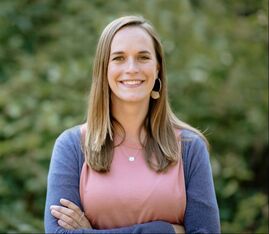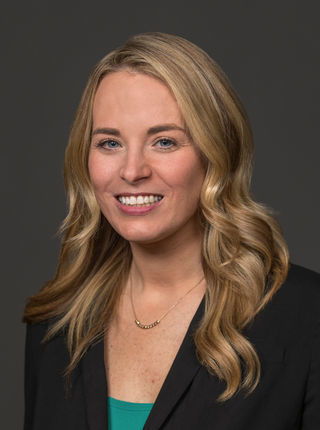Summer 2022 Program
|
Date |
Time |
Event Description/Location |
|---|---|---|
|
May 31 |
9:00am |
Lab Safety Training |
|
May 31 |
2:00pm |
Orientation |
|
June 10 |
11:59pm |
Title and Abstract due |
|
June 28 |
4:00pm |
Climate Solutions: Social-Ecological Linkages in a High CO2 World. Melissa Ward, PhD |
|
July 13 |
1:00pm |
Speaking and Posters: Presenting Your Work and Yourself. Public Speaking Workshop, Matthew Ruben, PhD |
|
July 20 |
4:00pm |
Using Mollusks to Elucidate Ecology and Climate in Mesozoic and Cenozoic Marine Environments. Jocelyn A. Sessa, PhD (Park 180) |
|
July 27 |
4:00pm |
Finding My Way to the Tenure Track and the GI Tract. Kelly Whelan, PhD |
|
August 5 |
|
Program End Date |
|
August 15 |
11:59pm |
Student Posters due Summer Research Summary (four PowerPoint slides) for şÚÁĎÉçÇř and Beyond Booklet due |
|
September 23 |
10:30am-1:30pm |
Summer Science Research Poster Session |
2022 Speakers Series

Melissa Ward, PhD
*from Dr. Ward's personal website:
"I am a California-based marine scientist investigating coastal climate change impacts and solutions.
Key focal areas include:
1) Blue Carbon:
How do aquatic vegetative habitats such as seagrass meadows, kelp forests, and salt marshes absorb and store carbon, and what role do they play in regional and global climate change mitigation?
2) Ocean Acidification:
Where is the U.S. West coast most vulnerable to impacts from ocean acidification? How will shellfish industries manage OA stress, and can we use aquatic vegetative habitats such as seagrass meadows to ameliorate this stress?
3) Coastal Policy and Management:
To ensure persistence of coastal communities and economies in a rapidly changing environment, coastal resource managers must be able to make adaptive changes on timescales that can keep pace with this change. What federal, state, and regional policies exist that limit adaptive capacity and how can we improve these policies?"
Jocelyn A. Sessa, PhD.
*from Drexel University's website
"Jocelyn A. Sessa, PhD, is a paleobiologist who uses the fossil record as a natural laboratory to study times of change in earth’s history. Her research melds fossil and modern data to elucidate the response of mollusk faunas (clams and snails) to environmental perturbations across space and time. Sessa’s studies span a wide range of events, from the mass extinction that killed off the dinosaurs to past climatic fluctuations, including intervals of past and present global warming. By analyzing the chemistry of mollusk shells, she also reconstructs the climatic conditions that affected ecosystems.
A new research initiative is focused on determining historical baselines for modern ocean acidification, to ascertain whether certain regions or species in the global ocean may be more resilient to future changes in ocean chemistry than others. Sessa’s hunt for mollusks is a worldwide endeavor, with fieldwork along the US eastern seaboard, the US Gulf Coast, California, Romania, and Angola. An important facet of her scholarship is mentoring high school through graduate students in research projects. Sessa is passionate about making science accessible to everyone. Since 2007, she has participated in programs to engage groups under-represented in the sciences and is excited to continue this work in the Philadelphia Area."

Kelly Whelan, PhD
*from Temple University's website
"Esophageal squamous epithelium exhibits a defined proliferation-differentiation equilibrium that supports barrier function, a primary defense against luminal contents, which may include food allergens and carcinogens. Esophageal pathology often features impaired squamous differentiation and barrier dysfunction, suggesting that mucosal defense mechanisms beyond mechanical barrier exist. We have identified autophagy as a critical cytoprotective mechanism in esophageal epithelia exposed to stressors relevant to esophageal squamous cell carcinoma (ESCC; one of the most deadly forms of human cancer), Eosinophilic Esophagitis (EoE; an emerging food allergy-associated inflammatory disorder) and Barrett’s Esophagus (BE; a precursor to esophageal adenocarcinoma). Using these studies as a foundation, we now aim to define the precise functional roles of autophagy in epithelial mucosal defense under conditions of health and disease. We utilize a multi-disciplinary approach coupling molecular biology and biochemical techniques with innovative murine disease models, 3D organoid culture and patient-derived specimens with associated clinical data to uncover fundamental mechanisms contributing to epithelial homeostasis and then apply this knowledge toward the development of novel translational avenues for prevention, prognosis and therapy in benign and malignant human diseases."

